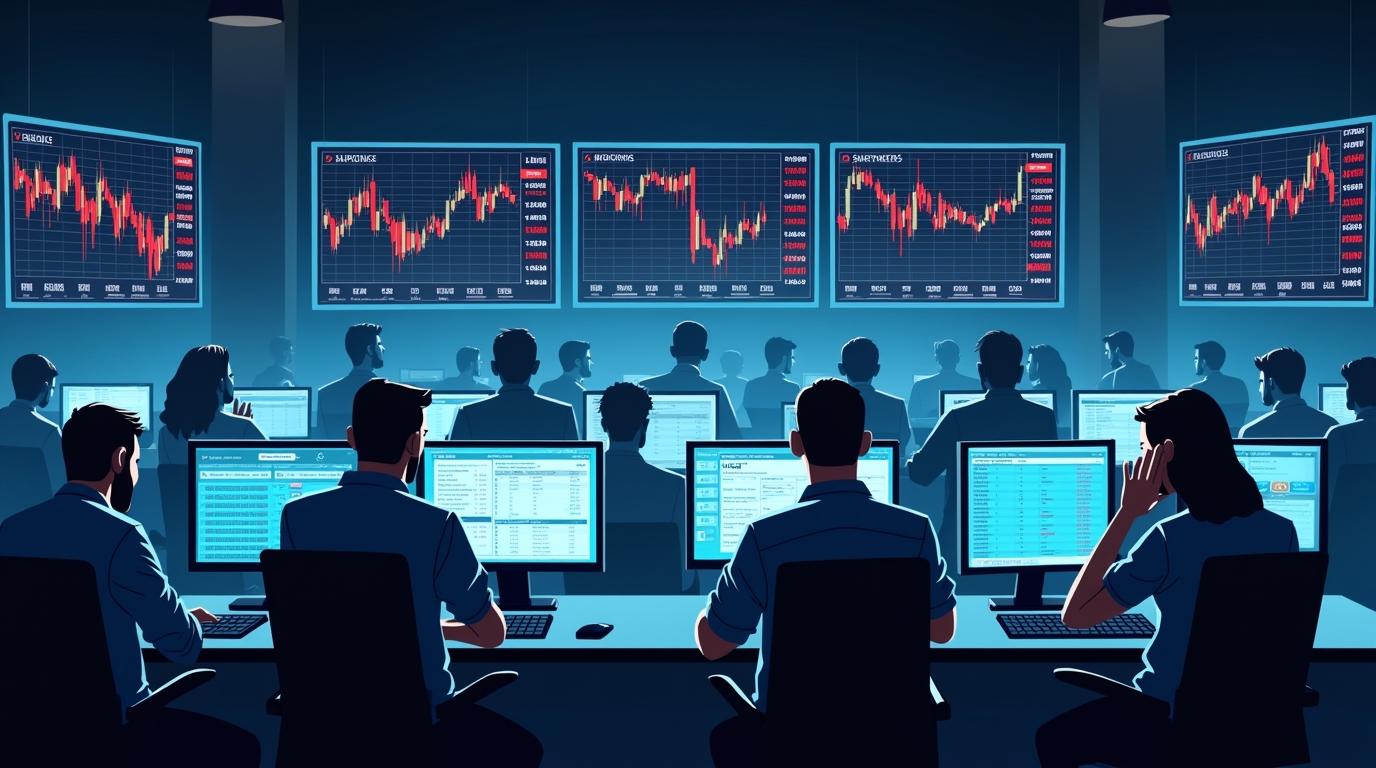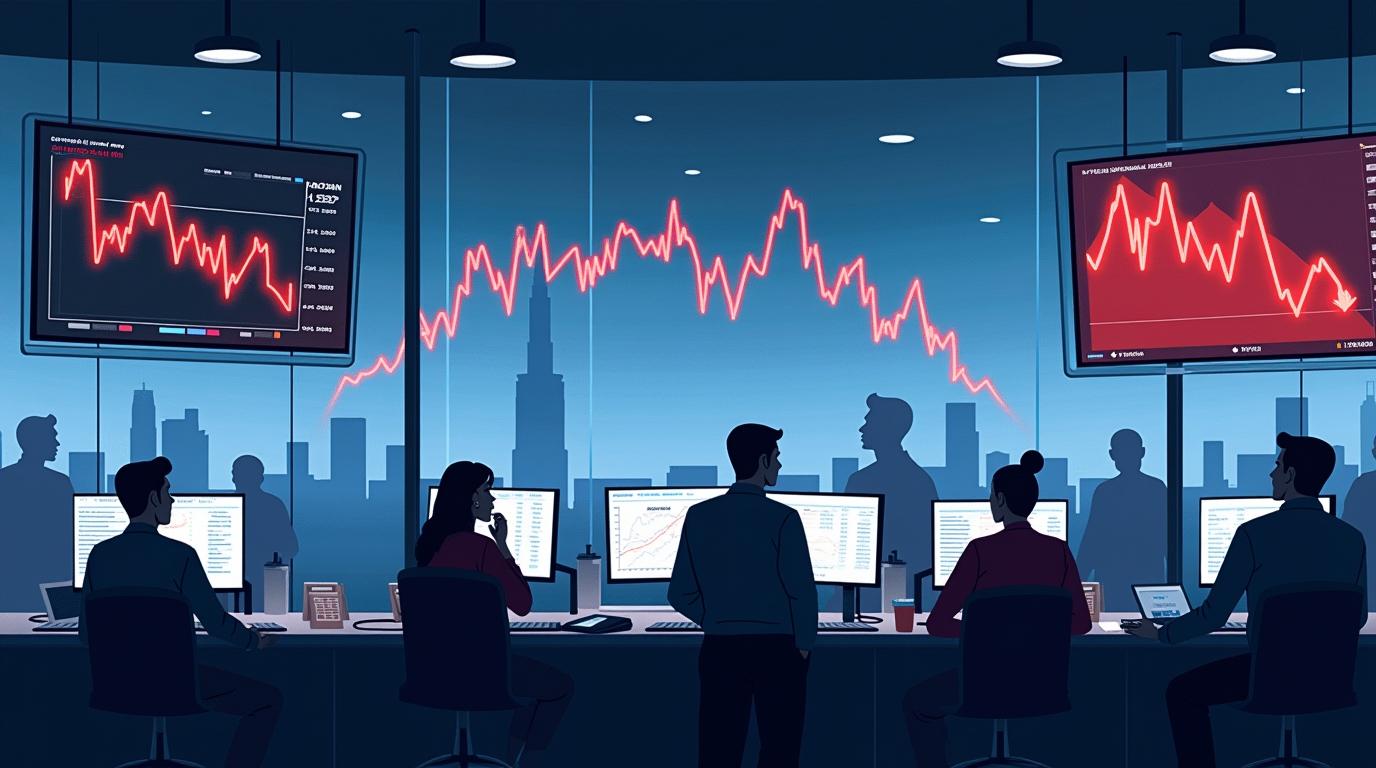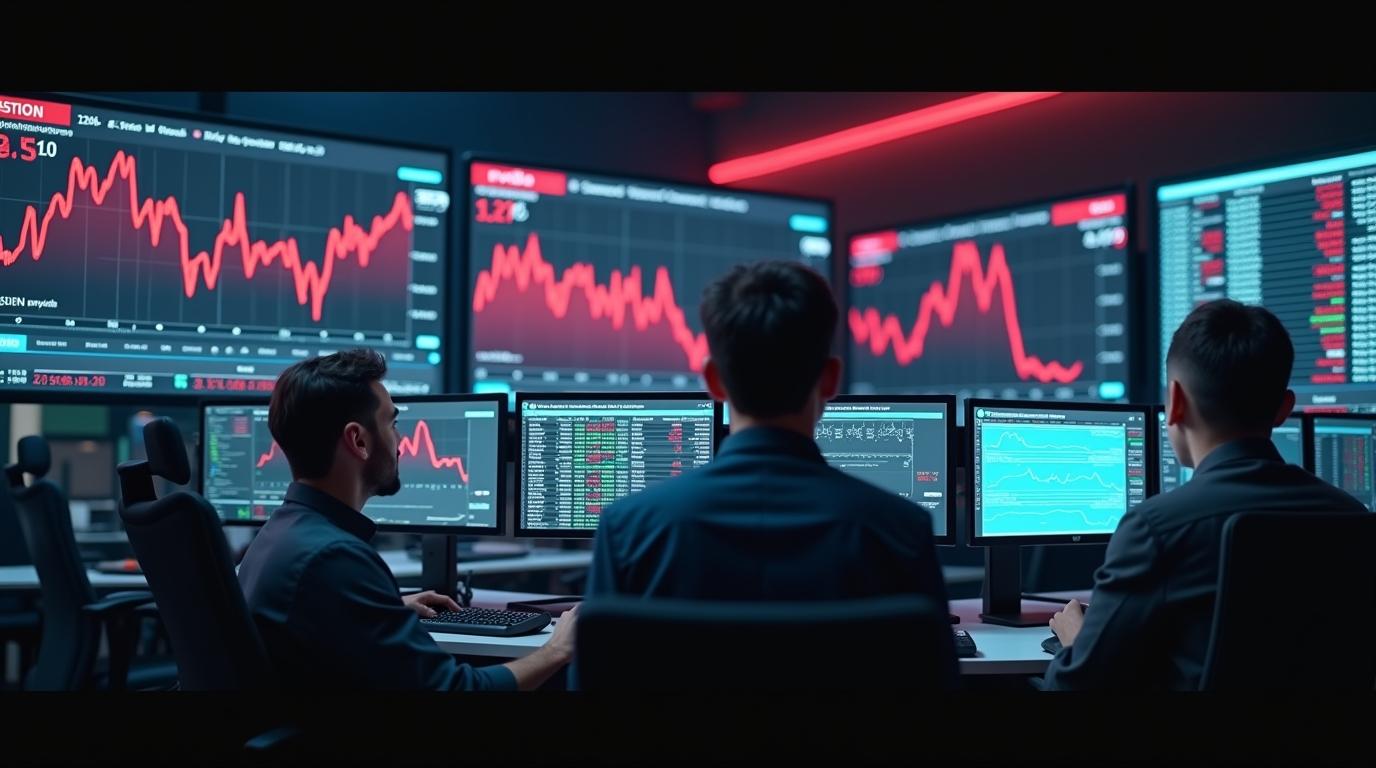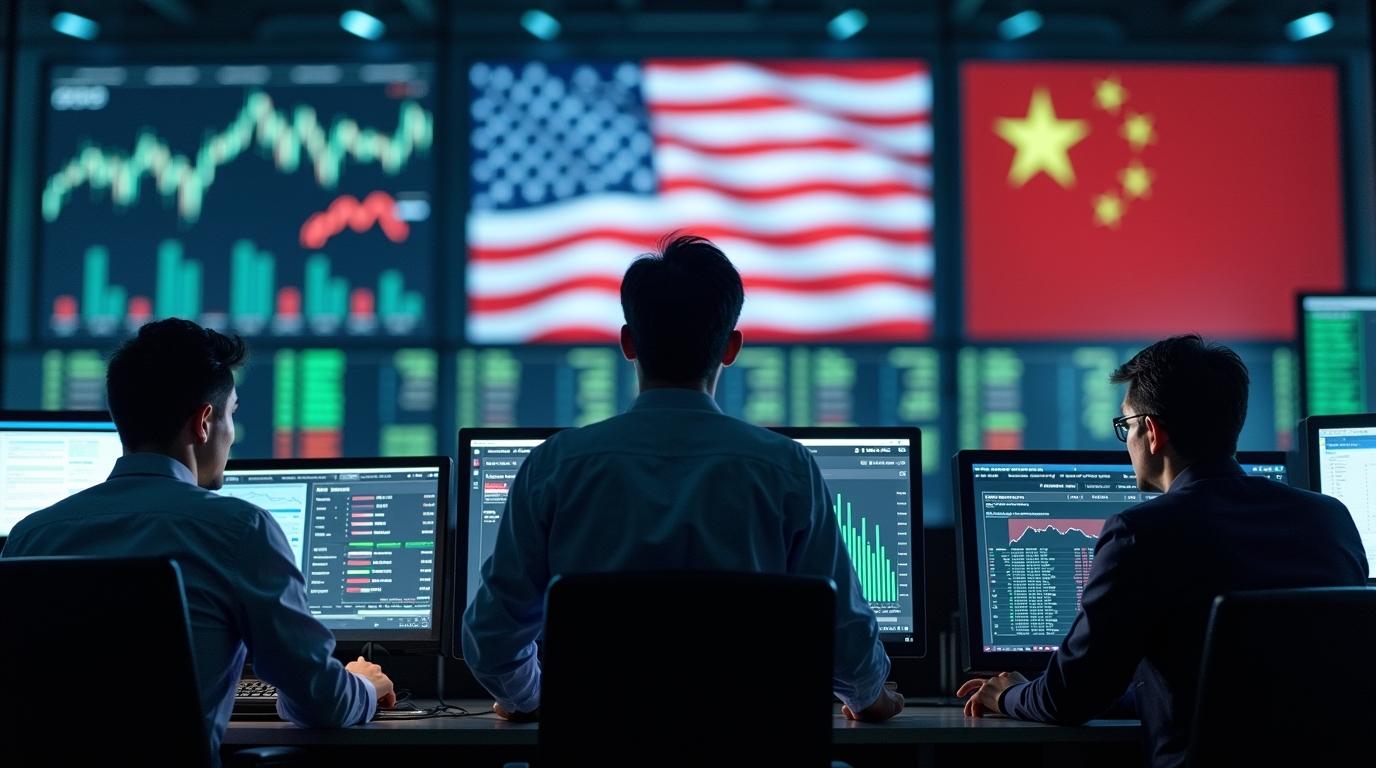Dow drops 1,000+ points as tariff tensions rise, shaking investor confidence across global markets.
Dow Plummets Over 1,000 Points Amid Ongoing Trump Tariff Concerns

Stock Market Plummets Than 1000 Points Amid Concerns About Tariffs
The Dow Jones Industrial Average dropped more than 1.000 points due to worries about tariffs imposed by President Trump that are causing turbulence in the markets.
The stock market in the United States experienced a drop on Thursday as the Dow Jones Industrial Average plummeted by over 1,o00 points. Investors became increasingly worried about rising trade tensions following the reintroduction of former President Donald Trump’s tariff proposals in policy talks. The S&P 500 edged closer towards bear market conditions amid growing concerns about the impact on trade and economic growth.
Major industries experienced declines across the board; however, technology companies, along with consumer stocks, were hit the hardest by losses incurred from selling activities in the market. The shift towards perceived havens such as U.S Treasuries and gold was evident as market participants sought refuge amidst increasing concerns surrounding their portfolios.
Many people were anxious due to concerns about measures resurfacing in discussions recently. Tariffs aimed at goods from China and Europe had an impact on people’s outlooks. Analysts highlighted the consequences on inflation rates, Earnings projections, and worldwide distribution networks. These issues have the potential to erode both investor trust and business strategies rapidly.
The prices of commodities like oil and copper saw a decrease due to concerns about a slowdown in demand affecting industries reliant on these resources. In contrast to this trend, Bitcoin’s value remained stable. Stayed within its price range. This stability in the cryptocurrency market might suggest that some traders are considering using it as a hedge against risks. It’s too early to rely on it completely for protection.
The recent drop in market activity on Thursday highlights how responsive markets are to changes in policies and regulations that affect them directly or indirectly through trade tariffs, which introduce an element of uncertainty, leading to caution among investors with a stake in industries reliant on trade dynamics like this one.
Pay attention to the reports and statements, from central banks as they can provide valuable insights into the market trends and potential policy changes based on economic performance and inflation expectations adjustments are likely to follow suit accordingly be ready to adapt trading strategies as new data becomes available, for both traders and long term investors alike.


